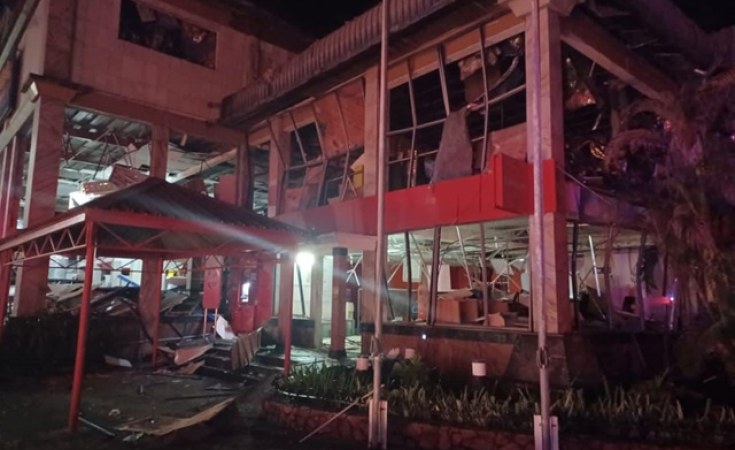A blast at an explosives warehouse has caused massive damage to an industrial zone on the Seychelles' main island of Mahe. The country's president has declared a state of emergency.
The president of Seychelles, Wavel Ramkalawan, declared a state of emergency on Thursday following a blast at an explosives depot and flooding caused by heavy rains.
The explosion occurred in an industrial area on Mahe, the largest island in the Indian Ocean archipelago, and caused extensive damage to the site and surrounding areas, the presidency said in a statement.
"Following an explosion at the CCCL explosives store that has caused massive damage to the Providence Industrial area and the surrounding areas and major destruction caused by flooding due to heavy rains, the president has declared a state of emergency for today the 7th December," the statement said.
Earlier in the week, heavy rains caused flooding that killed three people and caused severe damage in several areas on Mahe. Photos posted on the official Facebook account of the Seychelles Broadcasting Corporation showed collapsed houses, fallen trees, landslides and severe cracks in the island's roads.
Schools shut, people told to stay home
The presidency asked people to stay at home and announced that all schools would be closed. "Only workers in the essential services and persons traveling will be allowed free movement," it said.
The international airport is still operational and ferry services between the islands are running for visitors, the tourism-dependent country said on its official Visit Seychelles account on X, previously known as Twitter.
The Seychelles, a major tourist destination, consists of 115 islands. With a population of approximately 100,000, it's the least populated country in Africa. The archipelago is famous for its idyllic white beaches.
According to the World Bank's 2021 data, the Seychelles is the richest country in Africa in terms of gross domestic product per capita, with tourism and fishing being the biggest contributors to the economy. However, the high cost of living means that many people still live in poverty.
(AFP, Reuters)


